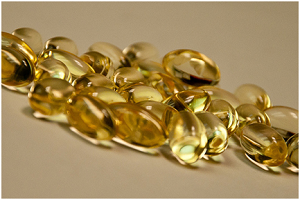We are used to taking vitamin supplements on a daily basis, and they seem to be an excellent idea because they make us healthier. Is that true? As human beings we are confident that vitamins are paramount for our existence, and that vitamin deficiencies can lead to severe health conditions. An alarmingly large amount of people takes both vitamins and multi-vitamins daily. They’re usually sold in pharmacies and grocery stores, and most of them don’t call for a prescription.
The vitamin supplement industry has grown tremendously over the past decade, and it’s now more powerful than ever. Companies base their theories on the people’s need to stay healthy, and if something can do so much good to your body, why not increase that dosage? Wrong! Unless you have a severe vitamin deficiency, supplementation won’t make you feel any better. It might surprise people, but mega-doses of vitamins can do more harm than good to your body. Choose to preserve your health and stop taking the following vitamins unless you actually need them:

Vitamin C
Vitamin C is the most well-known vitamin supplement out there. It comes in abundant amounts in delicious fresh fruits and veggies. Back in the days, a lot of sailors died of scurvy, which was a health condition that triggered by a severe vitamin C deficiency. An experiment was conducted in the 1700s that proved how citrus fruits managed to cure the illness, although ironically the real vitamin C was discovered in the 1930s. Its current popularity comes from misguided efforts of a book published in the 70s that claimed Vitamin C prevents common colds. Well, it doesn’t. In spite of the fact that the vitamin is safe for the human body, mega-doses over 2000mg might trigger kidney stones, which is an excruciatingly painful condition.
Vitamin A & beta-carotene
Vitamins C, A and E are anti-oxidants promoted for their allegedly anti-cancer properties. However, there’s no actual proof to attest the claims. In a recent study, smokers that took vitamin A supplementation had increased chances of getting lung cancer than the people who didn’t take vitamin A at all. Vitamin A might help our vision, yet too much of it can be extremely toxic and cause various side effects.
Vitamin E
Vitamin E claims to be an anti-cancer agent, so to prove the allegations there was a recent study performed on 35,533 men. They all took vitamin E to see how they react to the risk of prostate cancer. Rather than see satisfactory results, the researchers found that the cancer risks increased. To some extent, vitamin E is safe and the best way to take our daily dosage is from food. In special circumstances, supplementation might be associated with headache, fatigue, dizziness, blurred vision, weakness, nausea, abdominal pain, and diarrhea. Large doses may additionally lead to necrotizing enterocolitis.

Vitamin E
The B vitamins are present in many food types, so deficiencies are extremely rare. The NIH explains that long-term supplementation of vitamin B6 can be harmful. Increased doses taken for more than a year might trigger nerve damage that can result in loss of control in body movements. Some other side effects of vitamin B6 include nasty skin patches, nausea, severe sensitivity to sunlight, and heartburn.
Multivitamins
Just because everyone today is taking multi-vitamins it doesn’t mean they’re good. There was a study performed back in 2011 on 38,772 women with ages over 25 years old. Surprisingly, the research found that death risks increased tremendously with the extensive use of multi-vitamins, iron, vitamin B6, zinc, folic acid, magnesium, and calcium.

Multivitamins
Let’s get some things straight: vitamins don’t boost immune system, they don’t endorse joint health, they can’t diminish stress symptoms, and last but not least, vitamins don’t cure colds and similar health conditions. We’re not necessarily implying that vitamin supplements are not good. Yet, they should be taken with caution. It’s best to consult a physician first to know if your body actually needs vitamin supplements or not.


 (5 votes, average: 4.00 out of 5)
(5 votes, average: 4.00 out of 5)








